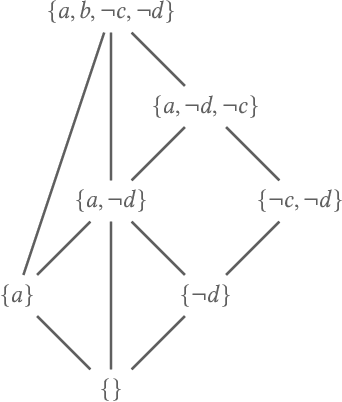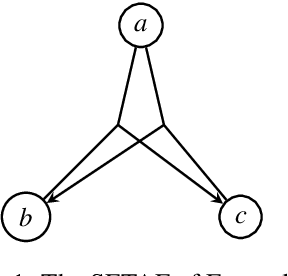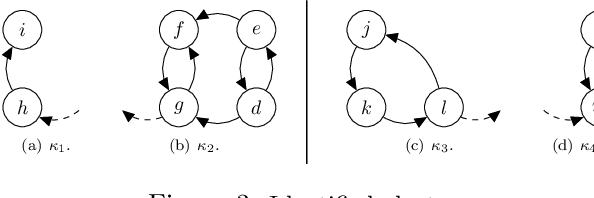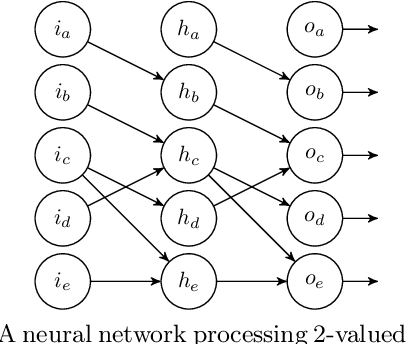Atefeh Keshavarzi Zafarghandi
Strong Admissibility for Abstract Dialectical Frameworks
Dec 10, 2020


Abstract:Abstract dialectical frameworks (ADFs) have been introduced as a formalism for modeling and evaluating argumentation allowing general logical satisfaction conditions. Different criteria used to settle the acceptance of arguments are called semantics. Semantics of ADFs have so far mainly been defined based on the concept of admissibility. However, the notion of strongly admissible semantics studied for abstract argumentation frameworks has not yet been introduced for ADFs. In the current work we present the concept of strong admissibility of interpretations for ADFs. Further, we show that strongly admissible interpretations of ADFs form a lattice with the grounded interpretation as top element.
Expressiveness of SETAFs and Support-Free ADFs under 3-valued Semantics
Jul 07, 2020


Abstract:Generalizing the attack structure in argumentation frameworks (AFs) has been studied in different ways. Most prominently, the binary attack relation of Dung frameworks has been extended to the notion of collective attacks. The resulting formalism is often termed SETAFs. Another approach is provided via abstract dialectical frameworks (ADFs), where acceptance conditions specify the relation between arguments; restricting these conditions naturally allows for so-called support-free ADFs. The aim of the paper is to shed light on the relation between these two different approaches. To this end, we investigate and compare the expressiveness of SETAFs and support-free ADFs under the lens of 3-valued semantics. Our results show that it is only the presence of unsatisfiable acceptance conditions in support-free ADFs that discriminate the two approaches.
Online Handbook of Argumentation for AI: Volume 1
Jun 22, 2020

Abstract:This volume contains revised versions of the papers selected for the first volume of the Online Handbook of Argumentation for AI (OHAAI). Previously, formal theories of argument and argument interaction have been proposed and studied, and this has led to the more recent study of computational models of argument. Argumentation, as a field within artificial intelligence (AI), is highly relevant for researchers interested in symbolic representations of knowledge and defeasible reasoning. The purpose of this handbook is to provide an open access and curated anthology for the argumentation research community. OHAAI is designed to serve as a research hub to keep track of the latest and upcoming PhD-driven research on the theory and application of argumentation in all areas related to AI.
 Add to Chrome
Add to Chrome Add to Firefox
Add to Firefox Add to Edge
Add to Edge